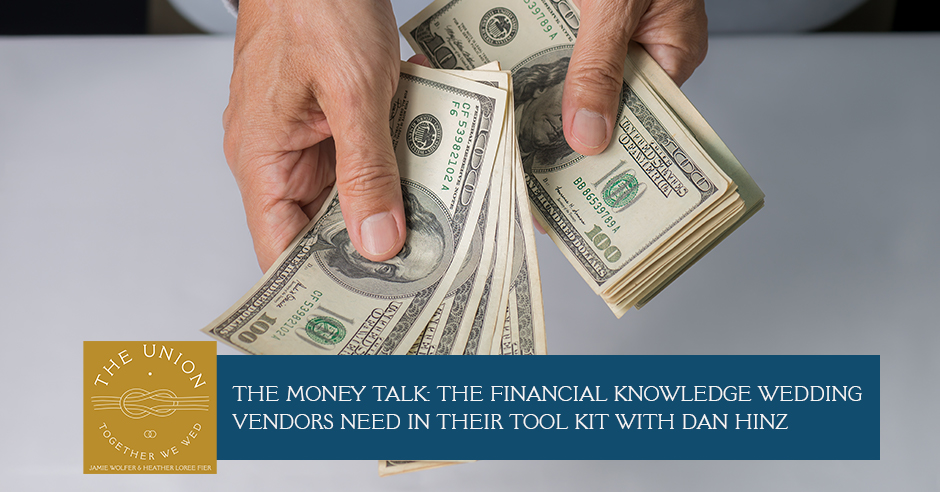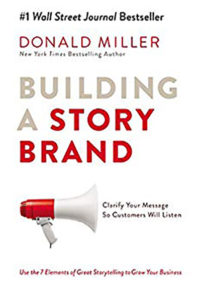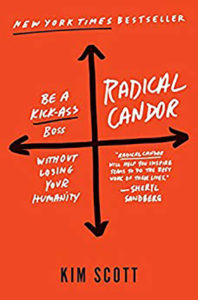
For those in the wedding industry, delivering the best value for your clients is greatly a one-shot experience. When the wedding is done, you are left hoping that they are happy and satisfied with your work. That is why the quest for overdelivering value is very crucial in this industry. However, to do so, you have to go through the money talk with your clients. Financial mastermind, Dan Hinz from Adulting with Money, joins hosts Jamie Wolfer and Heather Loree Fier to discuss the financial knowledge that every single vendor should have in their tool kit. This financial wisdom is important for vendors to have for their clients; it allows you to better guide couples through this (often) once-in-a-lifetime journey. Going deeper into providing you amazing knowledge, Dan also dives into financial wisdom for vendors on how to best ride the waves of entrepreneurship.
—
Listen to the podcast here:
Important Links:
- Dan Hinz
- Building a StoryBrand
- Acorns
- Chime
- Qapital
- Digit
- Tip Yourself
- Rich Dad Poor Dad
- This is Marketing
- Superfans
- Primal Branding
- Mint
- YouNeedABudget.com
- Wedding Hacker
- The Master Plan
- Radical Candor
- https://www.AdultingWithMoney.com/
About Dan Hinz
 Dan Hinz, MBA, is the gentle soul and financial coach behind Adulting With Money. For six years, Dan has taught engaged couples and newlyweds how talking about money can be as easy as grocery shopping.
Dan Hinz, MBA, is the gentle soul and financial coach behind Adulting With Money. For six years, Dan has taught engaged couples and newlyweds how talking about money can be as easy as grocery shopping.
A graduate of Iowa State University holding a master’s degree in business administration with a focus on finance, his 20,000+ word guide How to Talk About Money with Your Spouse: The Ultimate Guide teaches couples how to be on the same page with money by focusing on meaningful, lifelong habits and sprinkling in some helpful hacks. Dan also draws on his experience as an adjunct professor in finance when guiding couples towards financial and marital bliss.
Dan has been a guest on multiple podcasts, including Bridechilla, The Big Wedding Planning Podcast, Wedding Confessionals, Wedding Planning Podcast, From Ring to Veil, and Get Wed Podcast. He has written articles for Bridal Musings and Budget Savvy Bride and been the financial coach for two-morning radio shows, The Miguel Show with Holly & Mandy and The Chubbs & Mandy Show; both at Island 106 (WILN; Panama City, FL).
The Money Talk: The Financial Knowledge Wedding Vendors Need In Their Tool Kit With Dan Hinz
Jamie: On our episode, I don’t know if you’re ready because I wasn’t ready. I was not ready for how much my mind was going to be blown. In this episode, we have Dan Hinz. He is a Financial Mastermind. If I can say that, I’ve already felt like I need to apologize in advance to my husband for all of the financial conversations that we’re going to have after this because I’m excited. I’m excited about everything that I’ve learned. It’s going to provide value to all of our vendors and to all of our couples who are reading. There are much power and many nuggets of wisdom in the next however many minutes. You all better buckle up, grab your notepad, grab your pen and get ready to absorb all of this amazing knowledge that we can’t wait to share with you.
—
Jamie: Dan, thank you so much for joining us. We are excited to be able to pick your brain and get nuggets of wisdom both for our clients and for us as business owners. First of all, before we get going, thank you so much for being here.
Dan: Jamie, thank you. Thank you, Heather, for having me. I’m super excited. Ask away what can I help with?
Jamie: First and foremost, how can having some financial resources in your wedding planning toolkit help you, help your clients planning experience and marriage?
Dan: What it comes down to is that if you’re going to create raving fans, super fans for you and your services is that you want to try to overdeliver as best you can. For the longest time, I struggled with, “What does that mean? What does it mean to overdeliver?” Essentially, it’s to add value. If you can do anything that adds value to your clients, your customers’ lives, then that’s a good thing to do. When I think about wedding planners or photographers or caterers or bakers is that a wedding is hopefully a one-shot deal. Not always, but hopefully it’s a one-shot deal. There’s a lot of pressure and we’re all on this hook to try to do the best that we can and have a wonderful day. If you go see a movie and it’s bad, you don’t watch that movie again. When it comes to the wedding, there’s that pressure.
When trying to add value to your customers, if you have ideas of here’s an average of what people spend or if someone loves, wants, great photographs, here’s the area that they spend. You can do a great job of explaining the value, the benefit for the cost and to give examples. If this is their first time and hopefully only time maybe of doing this is that they’re not sure, they may not know what they want. They’re trying to figure it out as they go and figure out what they want as well.
Jamie: Many times, vendors overlook a huge amount of value they’re bringing to the equation because they have this long history of experiences planning weddings, all different budgets, all different styles. They have a bunch of information that they’re not even realizing is super valuable and can give perspective to the couple, where the couple is jumping into this even if they’ve had a wedding before. Not many of them and not a whole lot of frame of reference. Often as a vendor, if we don’t appreciate that we’re bringing a value there that is something beyond our skill set, whether you’re a calligrapher or you’re a baker, that you can hopefully guide them on some other little details.
If you’re picking up the vibe that the finances are stressing this couple out, broach that subject. It’s awkward to even for a couple who’s been together for years sometimes to talk about money. You as this outside person can be a little touchy. Do you have any suggestions about how to sense when is a good time to talk about money with your clients and then how to broach this sometimes awkward subject?
Dan: My best advice is if you haven’t read this book, Building a StoryBrand, Donald Miller is the guy who wrote it. His analogy is that as the expert, we are not the hero of this story. Our clients, the bride, the groom, they are the heroes of the story. We are the guide. We’re the Obi-Wan Kenobi and we’re trying to do our best to help them and give them advice. In the end, the choices are there. If you can imagine yourself to be the Obi-Wan Kenobi, the fairy godmother, someone that’s trying to help, but in the end, it’s not your choice. That’s a good mindset to have. When you know to step in is when you see them, they want your services, they want something but there’s that like, “I don’t know if I can afford this,” look on their face. That’s where you could start to talk to them a bit more to say, “What else is going on in your wedding budget?” Specifically for wedding planners, a great thing to do is have one of those template wedding budgets to say 20% on this and so much on the dress and venue to help them give us a starting point.
Also have those stories to say, “Here’s one wedding that we did that we skimmed on all this other stuff and then spend a whole bunch of money on the photographs. Here’s how it went.” Have those stories ready to go where you were the guide and then the bride and the groom were the heroes. Give them examples of when couples spend certain amounts of money in different areas, how that turned out. It gives them an idea to go, “Maybe that’s what I want.” When you do that, you’re showing a lot of benefits. You’re showing a lot of added value for whatever your costs may be. I don’t suggest lowering your costs because you’re an entrepreneur. You’ve got to eat, you’ve got to feed your family as well. It’s trying to hammer home, maybe not the best phrase, but it’s to show that value to whomever you’re speaking with.

Building a StoryBrand: Clarify Your Message So Customers Will Listen
Heather: I love that you brought up that book. This is something Jamie and I have discussed before. Putting yourself in the position of the guide is such a wise thing to do for us as entrepreneurs, as business owners. Positioning yourself in a way where you let the couple, let your client be the hero and not be competing with you as the hero, which I know is a huge thing in that book and in that whole philosophy of how to market yourself. Did you want to expand on that a little bit?
Dan: When it comes to the StoryBrand and being a guide is that the bride and the groom, they are the hero of their story. It’s a bit of a shift because as entrepreneurs, we’re trying to be the hero of our own stories and we want to help everybody. We want to be the hero and we want to come in and save the day. When it comes to those that are buying our services, that’s not the right way to look at it. The better way is to try to be the hero and try to be the guide. When you’re starting to talk to them about money, have a couple of little things in your back pocket. Especially if they’re trying to save up for the wedding, you could say, “Have you heard of these apps?” There are all these apps help you save automatically. Maybe you’ve heard of Acorns or Chime. There’s one called Qapital or Digit. My favorite wins the best name is Tip Yourself, which reminds me of Parks and Recreation.
What these apps do is you sign up and then as you’re going about your day buying things and going to Starbucks and whatever else is that it starts rounding up to the nearest dollar. All of a sudden after a couple of months, you might have a couple of hundred dollars sitting in an account there. You’re like, “I can upgrade to a different package. We can put this towards our honeymoon.” Suggesting that app in getting them to sign up, you’ve added hundreds of dollars of value to their lives and you’re the guide, but you’re also the hero. You’ve helped them become even more of a hero. Having those little things in your back pocket shows that not only are you great at what you do, whether it’s planning the wedding or as a photographer or as a baker, you’re also a great human being. That’s what we want to go for.
Jamie: A lot of hesitancy at that moment, I’m sure many vendors are reading this going, “Why me?” Even if they’re not a wedding planner, if they’re a photographer, if they’re a baker, they go, “Why me?” In my mind, it feels as though because that couple has booked you, they trust you and they view you as an authority in your field. Any advice that you give, they’re going to consider probably a little bit more important or equal to one of the best friends in their life because they booked you. They’re giving you large sums of money and say, “I believe that you’re going to pull this off for our wedding day.” Even if you are a baker or a photographer and you have those apps in your back pocket like Tip Yourself, you are going to be providing value beyond your packages and beyond your services. My question is, and I’m sure many people reading are thinking, “Why is it our job or the vendor’s job to be the voice of reason during their planning adventure?”
Dan: The voice of reason is to say, we don’t want to come off as salesy. We don’t want to come off as pushy, but we’re experts. The funny thing is you might start to feel that impostor syndrome. When it comes to being an expert is that if you know 2 or 3 steps more or you have a couple of a little bit more experience, then whoever you’re talking to, you’re the expert. I’m an expert in computers compared to my parents because they know I do a lot more things. I’ve got a sister-in-law who texted me, she’s like, “Should I get the new iPhone 11 or Galaxy S10 or the Google Pixel 4?” I said, “I don’t know. Why do you want a new phone?” She’s like, “I want great pictures.” I’m like, “Go with the iPhone.” The only reason I know more than her is because I watch a lot more YouTube videos. That’s about it.
Jamie: Is that the answer to everything, “I watch YouTube videos?”
Dan: Pretty much. Why should it be you? It’s because when it comes to weddings and when it comes to this special day is that you will put yourself above and beyond all your competitors. They’re not picking themselves. If you pick yourself to be that guide and to help out, then you are raising the bar not only on yourself but even your industry or your local competitors to say, “Here’s why I’m even better. I’m even more special.”
If you're going to create raving fans for you and your services, you want to try to overdeliver as best as you can. Click To TweetHeather: Weddings are such a high-pressure day and expensive. Even for the couple who is on a tight budget and only spending $5,000, for them, that is a big spend. Giving them good advice and coming from the perspective of a professional, someone who they can trust, that’s going to be well-received. It’s across the board no matter the person’s budget, there is going to be some level of hesitancy or fear or nervousness about spending this huge amount of money on a party. That’s there for every couple. Whether or not they’re directly expressing it or they’re in a more difficult financial situation or maybe they’re loaded and this isn’t that stressful at all, there’s going to be a little bit of like, “We’re doing this. We’re spending a lot of money on this.” It’s something that every couple is going to go through their mind and they’re doing it. You may guide them.
Dan: Sometimes you have indecisive people. Maybe they do have the money, but they’re like, “I don’t know. I don’t want to make the wrong choice.” That way if you’re the guide to help them make that choice and find out a bit more, what is it that you want? How did you imagine these things? I suppose I’m preaching to the choir at this point, but that’s what we’re going for, is to help them through this process and this one day.
Heather: I know for my clients, I do a lot of outlining how to approach this conversation. Weddings not only bring up having to have this awkward financial conversation with your spouse or future spouse but with sometimes relatives or your future in-laws or maybe even your great aunt. A lot of people can get in there. Getting yourself comfortable, having some key ideas of how to approach that without it becoming intense or uncomfortable is helpful. You can come up with a list of tips to give out to your clients that they may need, they may not need, but that’s something easy for you to do as a pro. Do you have an idea of what those tips might be since you’re coming from this savvy perspective here?
Dan: When it comes to dealing with brides and grooms and the money situation that they’re in, if you can have those cash apps where it’s starting to save automatically, that’s number one. It is an easy tip like, “Did you check this out? Have you seen this before?” Number two is going to be talking about the wedding budget. Also, having stories around those price points. Depending on what your service is and what the price points are, don’t have the numbers, have the stories like, “There’s this one couple and here’s the package that they bought. They loved it and here’s why they loved it. Here was this couple that bought my intro package and they loved it. Here’s why they loved it.” You’re showing how valuable you are at any price point and what they’re getting at that point.
It’s also going to take some practice. One of my other tips is to start to ask and see what happens. If they have a question and you don’t have an answer, another way to add value says, “That’s a great question. I don’t know the answer, but I know someone that does.” If you have some referrals or if you have friends in banking or if you have some other resources or if you have books that you know of, you don’t necessarily have to have the answer yourself. You might know where to find that answer because maybe you’re a little bit older in life and you’re a little bit wiser and a little bit more experienced. That can also help to add value to whomever you’re talking with.
Jamie: Interestingly, you say to reach out to other resources. When I’m training up interns or new assistants or whatnot, I try to impart this one bit onto them. Don’t say, “I don’t know.” Say, “Let me see if I can find out.” You don’t lose any authority. Not that you’re necessarily needed to be authoritative in the situation, but the second you start to look a little bit squirrely or something like that, people go, “Does this person know what they’re doing?” It’s completely acceptable to go, “That’s a fantastic question. I would love to find out an answer for both of us.” It comes from a place of confidence and positivity and you’re helping them out in the meantime as well.
Dan: It gives you a chance to build a relationship. On that same note, you could say, “I don’t know but I know someone. Let me ask them and I’ll get back to you.” Give them a promise and then deliver on that promise however little it may be.
Jamie: All of that speaks to not only who you are as a business person and what your services look like, but your character which causes people to believe in you even more. I know you’ve mentioned these apps a few different times but what are your favorite financial resources, tools or books that you think all wedding pros should know?
Dab: I suppose we’re talking to a lot of entrepreneurs. The first book I usually recommend is Rich Dad Poor Dad because, with that, it helps you to take yourself out of the mindset that wealth is with a paycheck and wealth is with assets. It helps you shift that mindset in a short, easy to read the book. The second thing I would start to read is about branding. Seth Godin and his book, This is Marketing, is wonderful because it talks about how great marketing creates some tension. You see a sign that says “Going out of the business sale.” You immediately think, “What deals am I missing?” You have to go into the store to relieve that tension. When it comes to marketing, creating some tension is great. We’ve talked about Donald Miller and StoryBrand. Pat Flynn came out with his book, Superfans, how to grow a community around you. Primal Branding is another great book. The author’s name has left me. It goes along with Pat Flynn’s book, Superfans, as far as how to build a community. Also, that can help you build an email list or have help people out as you go.
Going back to financial stuff, my favorite budgeting app is Mint. It’s free. I use it as my gateway drug into budgeting. If Mint were to fall off the face of the Earth, I would switch to YNAB, which stands for YouNeedABudget.com. They have a free trial. If you want to pay for something, it also works great. Those are the two apps and software that I suggest. You don’t need Quicken. You don’t need QuickBooks unless your life is complicated. Especially if you’re an entrepreneur, if you’re thinking about some accounting software, get something online like Zero or QuickBooks online or FreshBooks. Something that their whole purpose in life is to help you with accounting but to make it easy. Trying to get full-fledged QuickBooks is probably not what you need to do. That’s the list that comes off the top of my head. Unless you have any more ideas as far as what I should dive into.
Heather: I’m loving all these hints as you call it, Adult with Money. I know for my husband and I, both of us being entrepreneurs, this has been not always a smooth road. Having conversations between the two of us about budgeting sometimes brought up a lot of emotions. He came in and he’s like, “Have you heard of FIRE?” I was like, “Yeah, I’ve been reading this a while and looking into all this and pretty deep into all this.”
Jamie: What is FIRE? I don’t know what you’re talking about.
Heather: Dan, you explain it better than I go ahead.
Dan: FIRE is an acronym. It stands for Financially Independent Retire Early. One of the biggest names in the area is Mr. Money Mustache or Grant Sabatier is also is one of the guys that are into it. Essentially, it’s to figure out, “How can we retire at 35? How can we retire at 40? How can we retire at 45?” The process of like, “We need much money in a retirement account. How big does that retirement account need to be? How can we hustle and have side hustles or how can we ask for raises? How can we reduce our spending low that we’re saving half of our income?” We’re throwing as much money into retirement as fast as humanly possible and then investing it and letting it grow and then trying to retire as soon as humanly possible. When it comes to FIRE, there are some adamant people trying to save as much as humanly possible. You’ve got the FIRE Movement, the Financially Independent where it’s like, “We want to retire early, but we’re not that crazy about it.” There are different levels of it, but that’s the idea is to take away the idea of, “We have to wait until 65 to retire and then enjoy life.” You don’t need to do that. Here’s a different way of looking at it. That’s how I look at FIRE.
The only reason you are budgeting and planning ahead is to make sure the money is going towards the goals you want. Click To TweetHeather: We’ve been reframing the idea of what a budget is in our house because he had a stigma of like, “If we’re on a budget, that means our lives are miserable and we’re eating cans of beans every day. That’s what we’re doing.” I’m like, “No, your budget is literally, it’s the money you have, which can be a smaller amount or a huge amount of money and you’re figuring out how you’re taking control of it and harnessing it and leveraging it in a way that achieves the goals you have.” Whether that’s retiring early or whether that’s traveling the world, whatever works for you works for you. That conversation was hard for us at first. Do you have any tips for entrepreneurs who are struggling to have these conversations with their spouse or partner? Getting that conversation rolling is important, but sometimes can be hard to obligate.
Dan: Specifically for entrepreneurs, and I feel the same way, is that if the business isn’t going well, the last question I want to hear is, “How’s the business going?” Especially with your partner, with your spouse, I would suggest is setting some time aside every week, every two weeks and every month and that’s what you talk about. You talk about, “How’s the business going? What are you going through?” If your spouse loves you, they want to be on this adventure with you and they want to support you as best they can. Sometimes the best way to support you is to listen and nod and go, “Yes, dear.” Having that time set aside where you’re regularly checking in and having that regular communication not only lets them in on the adventure and what’s going on but also they don’t have to try to wait for the right time to ask, “How’s the business going?” They know, “Every Sunday night we’re going to talk about it. I’ll wait until Sunday and hear the update.” More regular communication will help.
If you were to broaden it a bit more for all couples, certainly communication is good. Going back to the budgeting part is I view handling money as a couple, as a family that you need to try to master three habits. The first habit is goal setting. Talking about your goals, deciding what we as a couple, we as a family want to do. Number two is to track your money. Watch it come and go. Use Mint, YNAB, Quicken, QuickBooks, I don’t care what you use, a spreadsheet. I have a good friend that he only wants to do spreadsheets. He’s crazy. It takes way too much time, but whatever works for him. Number three is to plan ahead. The thing is that 80% of your success is not going to come from the budget. It’s not going to come from the tracking. Your success is going to come from deciding, “Where do we want to go? What do we want to do next? What is it that we want?” You use the tracking and you use the budgeting to get there.
My wife had the same question when we first started a budget. She’s like, “If we use all of our toiletry money and we run out of toothpaste and I need to go buy toothpaste, but we’re out of toiletry money, does that mean I have to wait until next month to buy toothpaste?” I’m like, “No, we don’t have to wait. We go buy toothpaste. If we go over budget on our toiletries, we’ll take the money out of somewhere else.” At the end, when it comes to budgeting and planning ahead, the only reason you’re doing it is to make sure the money is going towards the goals you want. That’s it. Everything else is like, “Whatever.” If you go over-budget on groceries but you’re under budget somewhere else, who cares? You don’t have to be perfect predictors. It’s more about where do we want to go. We get a little bit closer.
Jamie: A phrase that my husband and I oftentimes will find ourselves sharing and sometimes we fall out of saying it more often and sometimes we say it all the time is, “Would you rather have Taco Bell or would you rather have a house?” It’s a silly statement because Taco Bell is nowhere near at the same cost as a house, but when we keep repeating it, “Would you rather have this or would you rather have a house?” We don’t own, we rent. One of our goals is to own a home, hopefully in the near future. It’s that simple, “Do you need that new pair of shoes or would you rather have a house?”
Dan: You’re putting a ‘why’ to what it is that you want and also why you’re going through this pain. I love Oreos and ice cream. I love eating them. I love enjoying them. If there’s a package of Oreos in the house today, it will not be there tomorrow. If I’m going to say no to Oreos, there’s got to be a good reason. It’s like I’m trying to lose weight. I’m in CrossFit, I’m trying to gain muscle. If I’m eating too many carbs and fat on the wrong days and times, then I’m shooting myself in the foot. I’m not as efficient in that goal as I might want to be. The same goes for budgeting and cutting back. If you want to be aggressive with doing a FIRE type of plan, you have a reason why. You know what you want and you know why you want it. That sacrifice makes complete sense. You’ve got to have that first and then go to the budgeting and the cutting back type of stuff.

Money Talk: If you pick yourself to be that guide and to help out, then you are raising the bar not only on yourself but even your industry or your local competitors.
Heather: It aligns well with the wedding where often I tell the couples, “You need to know what your priorities are, so you can allocate the money you have effectively to get the event you want.” This is the same thing with your life. If you love to travel and you want to put a bunch of money towards that and it’s way more valuable to you than Taco Bell or buying a house, great. For other people, getting the house is the goal and that’s something that they want as achieving another level in their life and moving forward. That’s an awesome thing too. There’s not necessarily a right or wrong answer. I feel like everybody has different ways to do it. I’m sure financial experts would say, “There is a wrong way, Heather. You can’t say that.” People are going to live their lives in different ways and find fulfillment in different ways.
Dan: A great question I heard was, “What if you spent $10,000 on the honeymoon instead of the wedding? What would that look like?” Is that important to you or would you rather spend it on the dress or would you rather spend it on the food or the location? What is it that you want? What’s priority number one? That way, if you have that list of what’s at the top and what’s at the bottom and money starts to get tight or you want something a little bit more than you thought, you know what to cut out from the bottom.
Heather: Dan, thank you so much for being here with us. We’ve already been shaking you for all the tools, but anything else you want to share that might be helpful to any of those engaged couples reading beyond those money-saving apps? I know you have some resources you share on your website, correct?
Dan: Yes. Going back to that idea of having a joint priority list is the couples that I work with, I put them through this step-by-step process where they go off and they come up with their priority list on their own. Then they come together and do it jointly. That step-by-step process is in a guide that I wrote and it’s free for everyone. If you go to AdultingWithMoney.com, you’ll land right on my website and you can download the guide for free. It’s a 20,000-word guide, it’s half a book. Not only does it have that process of how to get that joint priority list as a couple, but it has got all stuff about budgeting and joint accounts and separate accounts and all stuff.
Jamie: My mind is blown because as Heather has her Wedding Hacker course, I have The Master Plan, which is a similar concept. I dedicate an entire portion of it to prioritizing. Your priorities are going to affect where you spend your time and where you spend your money. I have not done that in my own life. Dan, I’m going to download this guide. I feel silly because why do I preach this to all my clients for their weddings and then me as an entrepreneur, I’m not even sitting down and applying those same things to what I’m doing here.
Dan: If you’re doing it jointly with your spouse, with your partner, then that’s where that magic comes from. A part of that goal-setting process is to talk about it. It’s, “How do you feel about debt? How do you feel about emergency funds? How much would you want in an emergency fund?” Another piece of advice is there’s a book called Radical Candor. It’s more of a business book for managers and stuff but one of the best pieces of advice in it, “It’s okay to have two separate meetings. Have one meeting where it’s brainstorming and then you take a break and you come back and you have a decision meeting.”
Often, when people are mad at sitting in meetings or they feel like a meeting was a waste of time, they wanted to make a decision, but then you’ve got these people that want to throw spaghetti at the wall and see what sticks. The people who are throwing spaghetti at the wall that see what sticks are getting mad at people trying to force them to make a decision. When you’re talking about money, that’s a good thing to do is to have a portion of a full-on date where you talk about stuff, but there’s no decision to be made. You’re not going to make a decision. Someday down the road, you do make a decision a little bit later.
Jamie: I like that concept a whole lot because my husband is the decision one and I’m the brainstorm one. To go into a financial meeting with the two of us and I was to clearly say, “This is where we’re coming up with ideas. We don’t need to solve anything. We’re just brainstorming,” that would help him to better put it into a two-part process instead of being like, “No, decisions,” and I’m like, “No, we need time to think about this.” I like that idea because it can help us if we formally know that we’re going into this, “We’re going to brainstorm. No pressure, no decisions. We’re throwing spaghetti at a wall.” Later on, after we spent some time thinking about it because money is one of those subjects that burns you out fast, whether you’re talking about retirement, about paying off college debt. Any time you start talking about massive amounts of money, where you want to go or where you’ve been and what you need to recover from, there’s much emotion attached to it. To separate it into two different meetings, there’s much power in that.
Dan: 99% of the time you’re going to ask a question like, “How much do we have that in that account?” It’s going to take you 30 minutes to be like, “We forgot the password and we’ve got to do two-step authentication.” It’s going to take time. You’re going to have questions and you’re going to spend a lot of time finding those answers. Come up with all those questions and then you break off and your research and find all the numbers and you come back and you do it again.

Radical Candor: Be a Kick-Ass Boss Without Losing Your Humanity
Heather: One of the things that came up a lot during the Wedding Hacker Expo was money dates. That idea of you can enjoy a glass of wine or go out to dinner and do these things, which is what folks recommended. You can also schedule some regular patterns for checking in with each other and setting those goals, looking at where you’re at so you can see if you’re staying on the path you’re talking about being on. I know for my husband and me, we always had annual goal-setting things, but then we’ve had to break it down further because once a year isn’t enough. That’s what we found.
Dan: Things change over time. The same can be said for budgeting. If things are tight and you truly are paycheck-to-paycheck, maybe you need to do weekly budgeting or every paycheck budgeting to find out exactly where all your money’s going to go. An overdraft fee or a late fee, if that is going to hurt you, you want to be on the ball. On the opposite end, if you’re Bill Gates, you never need to budget because there’s no amount of food you’re going to eat or cars you’re going to buy or houses that you’re going to buy, that’s going to bankrupt you when you have billions upon billions of dollars. Put somewhere in the middle there. Also, you might be a couple of where things are okay and maybe a $100 here and there doesn’t faze you. You might be able to do budgeting monthly or quarterly. My wife and I still do it monthly, but we’re right on that edge where it’s like, “How much time do we need to spend on this every month and maybe we’ll go to quarterly?” It’s finding the right balance for each couple individually.
Heather: As entrepreneurs, I find it to be more comfortable to check in more often because a launch can happen, things can be going great and then the next month can be like, “This is a working month where I’m getting a new project developed and money’s not coming in from it.” There are ebbs and flows. With two of us being an entrepreneur here in this household, that makes it extra crazy if we’re both in that low phase. Every person has the right pattern for them. Every couple will find that, but certainly check-in and keep the conversation going and keep it positive. That’s the judgment-free zone. It’s important to have that safe space to discuss this stuff so that you can be productive.
Dan: It might be a little uncomfortable at first, but you’ll get used to it. As you talk about things over time, you become comfortable. My wife and I talk about money all the time. We have our little 30-second or 5-minute budget meetings when things happen like, “Did we buy the dog more meds? Where is it going to come out of?” We don’t think about it, we just do it. It will get more comfortable over time, the more you do it.
Heather: Thank you so much for being here and sharing this wisdom with us. I hope that the entrepreneurs reading got something from it, that maybe they’ll tap into your resources to give some guidance to their couples as well as any of you who are out there reading that are engaged. Dan’s a great resource here to help you start your marriage in a strong financial position by putting some of these little bits of wisdom into place.
Jamie: I don’t know about you, but I want to race off of this podcast and start talking with my husband about it. I feel encouraged. I feel invigorated. I feel like, “I got this. We could brainstorm,” and then come back to it later and decide. Dan, I’m feeling encouraged and empowered.
Dan: I’ll email him and send him my condolences for having you ambush him.
Jamie: You’re probably going to need to do that because he’s going to be like, “Where did this come from? We haven’t had a budget conversation in 1.5, 2 months.” It’s going to be drinking from a fire hose and I am not sorry.
Heather: Thank you again, Dan. Everyone, enjoy this stuff of financial wisdom. It’s going to be some life-changing stuff.





